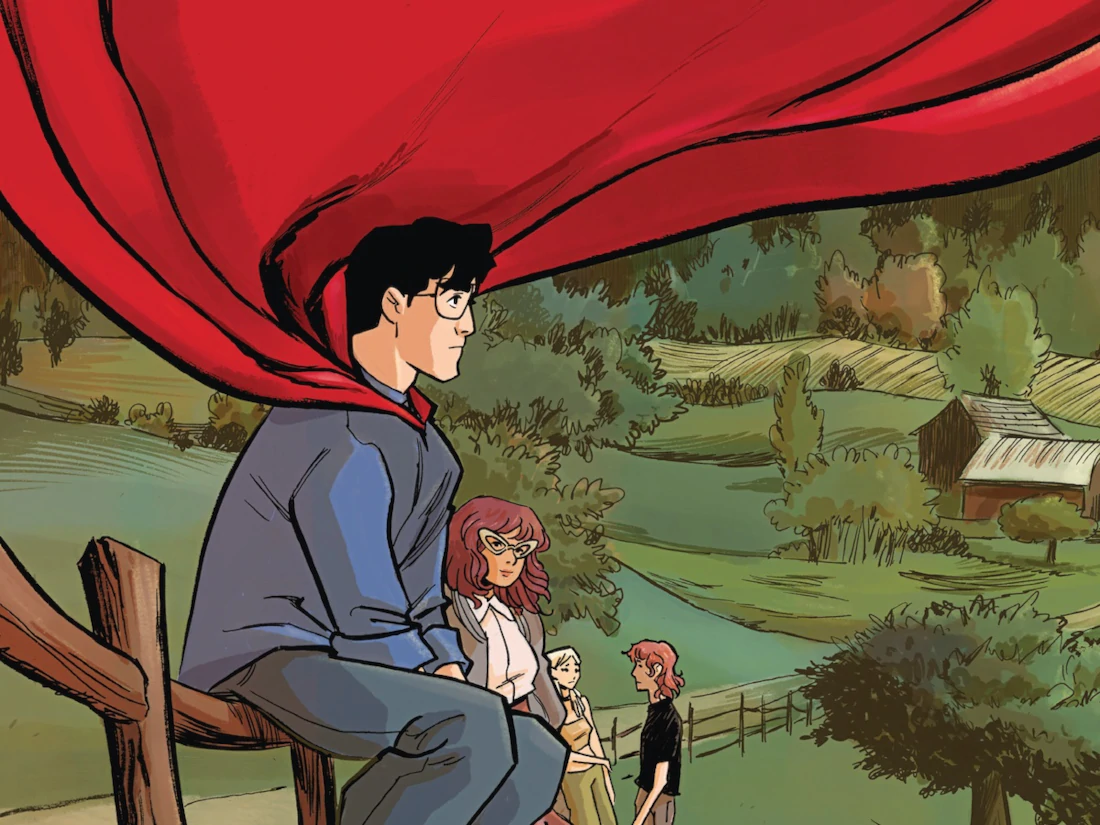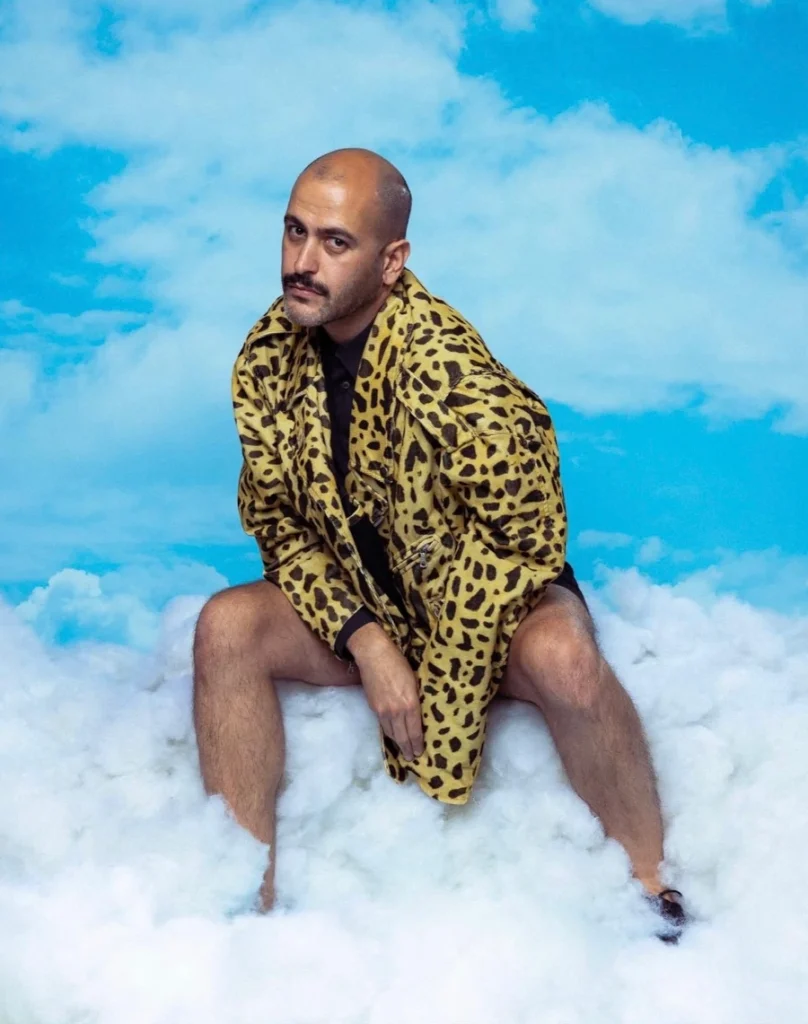
An Interview with Sina Grace
Words By Sina Grace, Interviewed by Dominic Loise, Art By Sina Grace
Trigger Warning—This interview deals with the subject of death by suicide and suicidal ideation
Superman: The Harvests of Youth deals with the topic of suicide awareness. With all of Clark Kent’s powers, what was it like writing him in high school and his fellow students having an invisible illness which his Kryptonian abilities (super strength, heat vision, ect.) are no match against?
This is terrible phrasing, but it was so much fun writing about a superhero tackling issues he can’t punch his way through! From a creative standpoint, I always struggle with being the writer who comes up with the coolest, most inventive fight scenes. Being in touch with my emotions and writing about people finding ways to connect with each other? I excel! This is to say, I felt confident going in and telling a story about people getting lost right under Clark’s nose and how he takes these lessons to become the greatest superhero of all time. A do-good teen like Clark wants to run directly at every problem and fix it right away… that’s not always the best move (even in fight scene situations), so putting him in these delicate and vulnerable situations felt like a great place to do my best as a storyteller.
After a decline before the Covid pandemic, The Center for Disease Control and Prevention reported that the United States has seen a 4% increase in the rates of completed attempts in deaths by suicide in 2021. Since the CDC’s 2022 percentage still shows an increase in this percentage, how does Superman: The Harvests of Youth address the topic of suicide awareness in a comic book universe where the main character of Superman symbolizes Hope?
In making Superman: The Harvests of Youth, I tried my best to portray the reality of loss and similarly what it’s like to feel lost. There’s a song by Sleater-Kinney called “Reach Out” that was incredibly inspirational during the production of Superman. Even though the song was released before the pandemic, it so terribly captured the desperation we all felt during lockdown. I stayed focused on real emotions, and then used the characters to find different ways to say things I would have wanted to hear (or, in some instances, say) in those moments. Giving space and normalcy to these big, dark feelings… that was sort of the best I could do without becoming preachy.
I started writing this book in May 2020, and turned in my last page of art in November 2022. Every beat of this book was made in the confines of my home, where I think there’s a subconscious infusion of my own tug-of-war between desperation and hope. I was creating the most difficult and upsetting book of my career, but I was making it with the hope that it would see the light of day, that publishing and comics would be on the other side of an industry-wide shutdown.
Clark is not the only person looking for what to say as a way of supporting other characters in Superman: The Harvests of Youth. How was it writing Jonathan and Martha Kent scenes particularly when Jonathan is trying to find the words to guide his adopted son with alien superpowers when Clark is looking for human answers?
My main goal with the book was to show all the different ways people struggle and how “not succeeding” doesn’t mean “failure.” Pa Kent is usually portrayed as having the answers, so I really loved putting him in a position where instead of giving Clark terrible advice, he’s kind of like “I’m stumped too.” I also wanted to capture that moment in adolescence where you realize your parents don’t understand or aren’t the ones to turn to when the challenges get big. Clark’s parents really were my favorites to write, just because they volleyed off each other like a real couple… quibbles and all. Without spoiling an interaction at the end, they show what compassion looks like in terms of taking someone for where they’re at and not pushing them harder than they can take.
The graphic novel deals with the ongoing issue of cyber bullying that students face today. Could you talk about writing Clark facing an unseen adversary which does not comes from outer space but is fellow students he walks with in the same school hallways and fellow community members he unsuspectedly passes on the local streets of Smallville?
When I started making this book, I wanted to give love and humanity to issues that I’ve faced in my own life. It seems easy for folks to fall into some rabbit holes online, or jump onto bandwagons where they’re not quite understanding the impact of their actions. Humanizing that stuff made me find some of my own peace in terms of recognizing that these people are finding community of their own… albeit at the expense of my mental health. I don’t think there’s any point in trying to challenge cyber bullying online, but making more of an effort to reach out to people in everyday life feels like a good first step.

In the graphic novel, Clark Kent also discovers an online hate group operating in his midwestern hometown of Smallville. What increase of hate speech have you noticed on comic book websites and message boards as the industry grows to be more diverse in its audience representation?
I’ve noticed a lot of misguided anger proliferating in our industry. From my own personal experience, things were hitting a boil around five to seven years ago… it seemed like people thought the best way to get what they wanted (less of the books they disliked?) was to demoralize and relentlessly attack individuals. I’m sure the rhetoric and activity is still happening to the same degrees as I experienced when I was promoting my Iceman book at Marvel, but nowadays I just post and walk away from platforms where that chatter goes on. I think the thing I’m noticing too is that it’s really only focused on the “floppy”/ direct market side of comics.
Superman is a character who is limitless in his ability but what guardrails come with writing Clark in this story as opposed to stories you are able to tell with your independent comic book characters Rockstar and Softboy?
When it comes to writing a character as beloved as Clark Kent, I just have to be sensitive about how the character interacts with potentially amoral or “naughty” things. In my book, Clark is a teenager, so when Lex Luthor is seen drinking in the book, I had to make it abundantly clear that Clark wouldn’t participate in or condone underage drinking. It wasn’t a problem to spell out what I believe is the character’s DNA, and I think the same is true in the other direction with Rockstar and Softboy. Those boys are bawdy and aggressive in their pursuit of gay hijinx, so I took great care spelling that out in their dialog and actions.
Where can our readers find you and your work online?
Nice thing about my name is that I have a pretty firm hold of @SinaGrace on all platforms! Instagram is my fave place!!